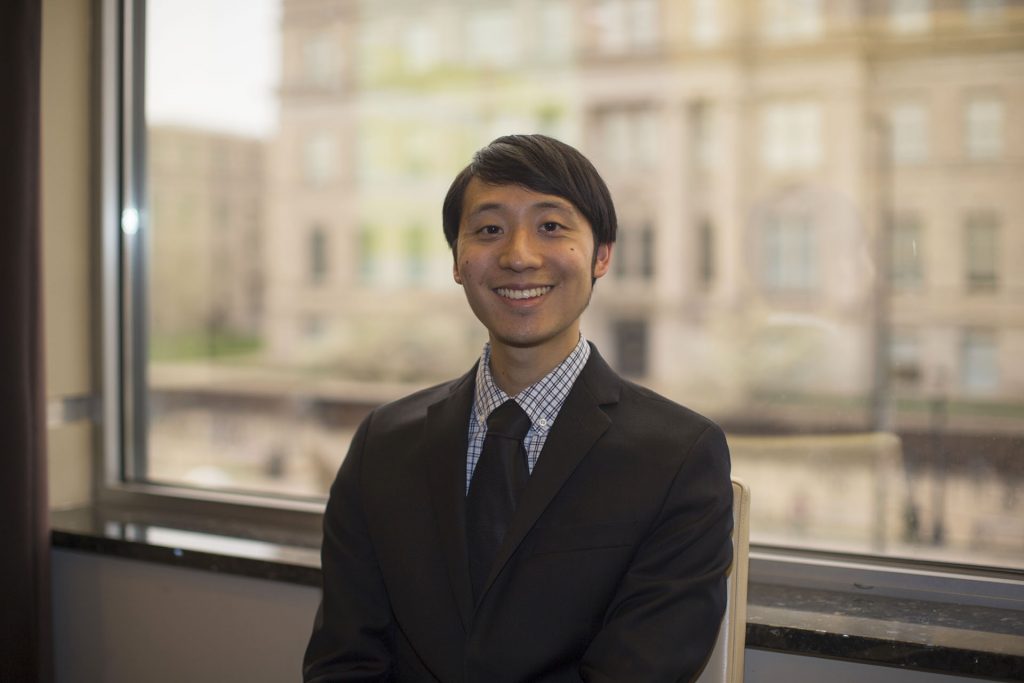The University of Iowa Graduate and Professional Student Government on Tuesday in the University Capitol Center elected its new executive board for the 2018-19 academic year, which will include new President Dexter Golinghorst and Vice President Thomas Pak.
Golinghorst came to the UI from Walcott, Iowa, and received undergraduate degrees in political science and economics in 2016. He is now enrolled in both the UI College of Law and College of Public Health and plans on obtaining an M.H.A. and J.D. by 2020.
Prior to his election as GPSG president, Golinghorst served as co-president of the Iowa Student Bar Association and as a law delegate for GPSG. Golinghorst said he looks forward to taking the next step as president.
“I think the UI is at an exciting time of transition between new leadership,” he said. “As education becomes more important in succeeding, I want to ensure graduate and professional students have a seat at the table, that our voice is heard in these hiring positions.”
Incoming Vice President Thomas Pak also looks forward to being vice president of GPSG. Pak obtained an undergraduate degree at Johns Hopkins University, in Baltimore, where he majored in neuroscience and minored in bioethics and dance, an activity he still takes part in frequently.
Pak is in his first year of obtaining a Ph.D. in the Medical Scientist Training Program. During his time as vice president, Pak hopes to take on three major issues he sees facing graduate and postsecondary students.
First, Pak wants to improve inter-professional relationships among the UI’s six graduate/professional colleges. Drawing from his laundry list of leadership experiences, Pak feels his time at the Iowa Medical Innovations Group, an interdisciplinary group taking an eclectic approach to the development of medical technology, has given him the experience to help facilitate the relationships.
Second, Pak wants to increase advocacy at a governmental level, addressing key issues facing graduate students. In the past, these issues have ranged from increasing tuition to DACA.
Finally, Pak wants to improve the general well-being of graduate students. Pak said graduate schools present emotional challenges and stress, and people in postgraduate education experience a higher rate of depressive episodes.
Pak wanted one thing to be clear — he is always within reach of his constituents.
“At GPSG, we have more power to enact change,” he said. “I really want more student involvement, I want to make sure voices are heard, and that I am always available.”
Current President Tejasvi Sharma looks forward to seeing the work the next administration will do in the 2018-19 year.
“I am very happy; we have a good administration coming in,” Sharma said. “I think GPSG is in good hands.”
Sharma noted on the accomplishments of GPSG during his presidency, such as hosting events allowing people from different graduate/professional colleges to network, establishing a GPSG liaison for the City Council, establishing bias training as a requirement for GPSG members, and working closely with UISG on several major initiatives.
Sharma is proud of the opportunity to serve his fellow graduate and postgraduate colleagues, citing a biblical passage he has tried to uphold throughout his service.



